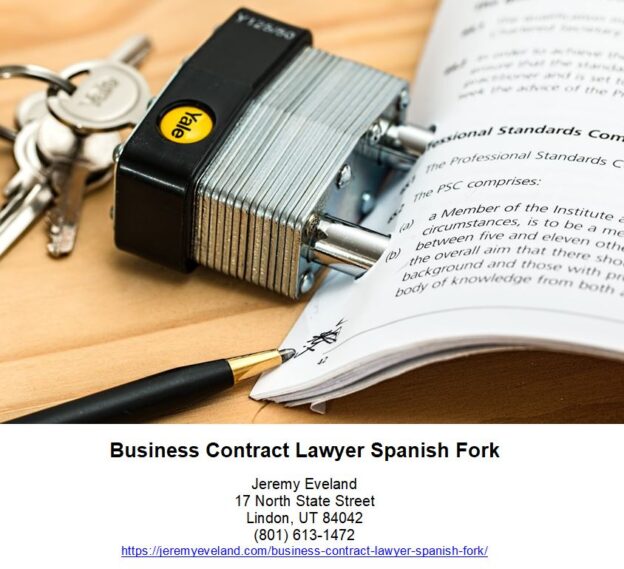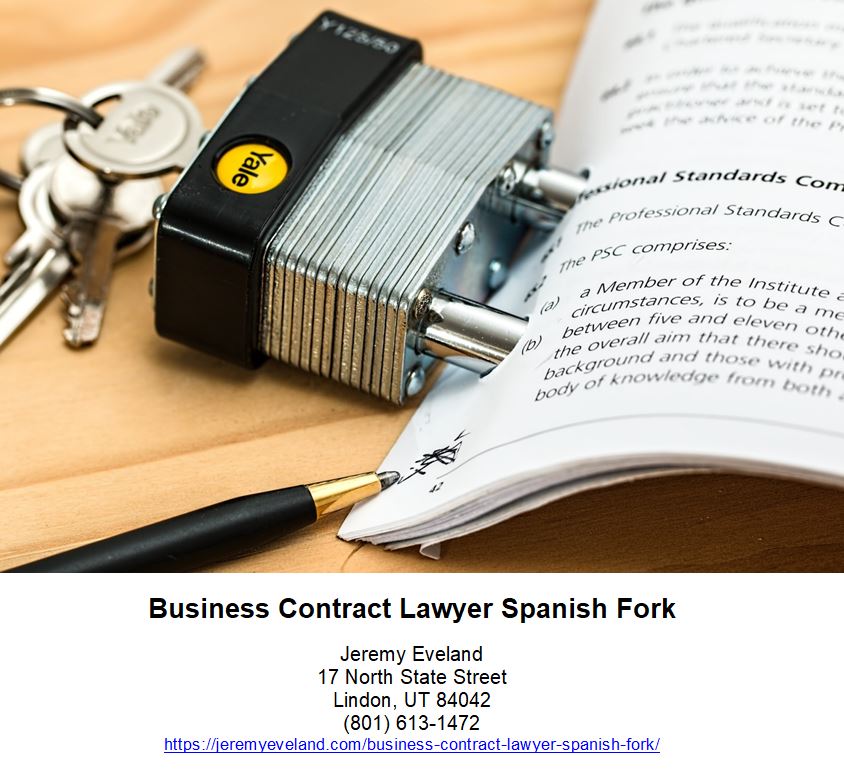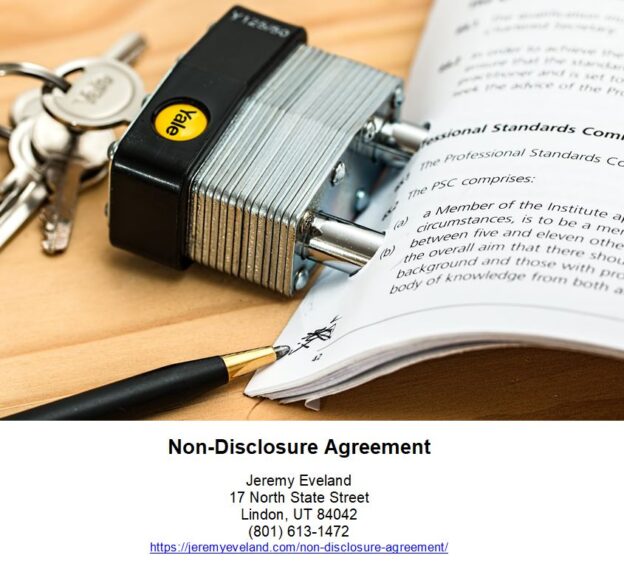Business Lawyer Tremonton Utah
Are you a business owner in Tremonton, Utah? Do you find yourself in need of legal assistance for your business? Look no further than the skilled expertise of a business lawyer in Tremonton, Utah. In this article, we will explore the crucial role a business lawyer plays in protecting your interests and ensuring legal compliance for your business operations. By delving into the intricate details of business law in Utah, we aim to provide you with a comprehensive understanding of the subject matter. After gaining extensive knowledge about the services offered by a business lawyer in Tremonton, Utah, you will be compelled to reach out and secure their professional expertise.

What is Business Law?
Business law refers to the body of legal principles and regulations that govern commercial transactions and activities. It encompasses a wide range of topics, including contracts, intellectual property, employment law, taxation, and more. Business law ensures that businesses operate within legal boundaries and helps to establish a fair and efficient business environment. Understanding and complying with business law is essential for businesses of all sizes to protect their interests and avoid legal disputes.
Definition of Business Law
Business law, also known as commercial law, encompasses the legal rules and regulations that apply to individuals and organizations engaged in business activities. It covers a wide range of legal areas, such as contract law, corporate law, employment law, intellectual property law, and more. These laws are put in place to regulate business conduct, protect the rights of businesses and consumers, and provide a framework for resolving disputes.
Importance of Business Law
Business law plays a crucial role in shaping the operations, transactions, and relationships of businesses. Some of the key reasons why business law is important include:
- Legal Compliance: Businesses need to comply with various laws and regulations to avoid legal consequences. Business law ensures that companies understand their obligations and responsibilities under the law.
- Protection of Rights: Business law protects the rights and interests of businesses, shareholders, employees, and consumers. It establishes guidelines for fair competition, prevents unfair business practices, and safeguards intellectual property.
- Dispute Resolution: Business law provides a framework for resolving conflicts and disputes that may arise in the course of business operations. It offers remedies and legal mechanisms to settle disputes efficiently and fairly.
- Contractual Agreements: Business law governs the creation, interpretation, and enforcement of contracts. It ensures that contracts are legally valid, addresses issues related to breach of contract, and protects parties involved in business agreements.
- Business Formation: Business law guides the process of forming and structuring a business entity, such as a sole proprietorship, partnership, or corporation. It helps entrepreneurs understand the legal requirements and choose the most suitable business structure for their needs.
- Risk Management: Understanding business law allows businesses to identify and manage legal risks effectively. By adhering to legal obligations, businesses can minimize the likelihood of legal disputes, lawsuits, and financial penalties.
Scope of Business Law
The scope of business law is vast and covers a wide range of legal areas that impact businesses. Some of the key areas within the scope of business law include:
- Contracts and Commercial Transactions: Business law governs the creation, enforcement, and interpretation of contracts, including sales contracts, employment agreements, partnership agreements, and more. It ensures that agreements are legally sound and protects the rights of parties involved.
- Corporate Law: Corporate law covers legal aspects related to the formation, governance, and dissolution of corporations. It addresses issues such as shareholder rights, director and officer liabilities, mergers and acquisitions, corporate finance, and more.
- Intellectual Property: Business law protects intellectual property rights, including patents, trademarks, copyrights, and trade secrets. It ensures that businesses can safeguard their innovations, creations, and unique branding elements from infringement.
- Employment Law: Business law includes employment regulations that govern the relationship between employers and employees. It covers areas such as hiring practices, wage and hour laws, workplace safety, discrimination, harassment, and termination procedures.
- Taxation: Business law encompasses tax laws and regulations that businesses must comply with. It includes understanding tax obligations, filing taxes, claiming deductions, and ensuring compliance with tax laws at the federal, state, and local levels.
- Consumer Protection: Business law includes regulations that protect consumers from unfair or deceptive practices. It ensures that businesses operate ethically, provide accurate information, and comply with consumer protection laws.
- Bankruptcy and Insolvency: Business law provides guidance on bankruptcy and insolvency proceedings. It establishes rules for restructuring debt, liquidating assets, and resolving financial distress for businesses facing financial difficulties.
Understanding the scope of business law is crucial for businesses to navigate the legal landscape effectively and ensure compliance with applicable laws and regulations.
Why Do I Need a Business Lawyer?
Navigating the legal aspects of running a business can be complex and challenging. From complying with legal requirements to handling contractual agreements, there are many areas where a business lawyer can provide valuable guidance and support. Here are several reasons why you may need a business lawyer:
Navigating Legal Requirements
Businesses are subject to numerous legal requirements, including licenses, permits, and regulations. A business lawyer can help you understand the specific legal obligations related to your industry and ensure that you comply with them. They can guide you through the process of obtaining necessary licenses, permits, and certifications, reducing the risk of legal penalties or closure of your business due to non-compliance.
Forming and Structuring a Business
Choosing the right legal structure for your business is crucial, as it impacts various aspects such as liability, taxation, and governance. A business lawyer can advise you on the different types of legal entities available, such as sole proprietorship, partnership, limited liability company (LLC), or corporation. They can help you evaluate the benefits and drawbacks of each option and assist you in the formation and registration of your business.
Drafting and Reviewing Contracts
Contracts are an integral part of business operations, covering various aspects such as agreements with suppliers, clients, employees, and business partners. A business lawyer can help you draft, review, and negotiate contracts to ensure that your legal rights and interests are protected. They can identify potential risks, liabilities, and loopholes in contracts and ensure that they are legally enforceable.
Intellectual Property Protection
Intellectual property (IP) assets, such as trademarks, patents, copyrights, and trade secrets, are valuable assets for many businesses. A business lawyer can assist you in registering and protecting your intellectual property rights, as well as enforcing them against infringement. They can help you navigate the complex landscape of IP law, conduct searches for existing trademarks or patents, and draft licensing or assignment agreements to protect your IP assets.
Handling Disputes and Litigation
Disputes and legal conflicts can arise at any time during the course of running a business. A skilled business lawyer can represent your interests in negotiations, mediation, or litigation processes. They can help you resolve disputes efficiently and favorably, whether they involve contractual disagreements, employment disputes, intellectual property infringement, or other legal issues. Having a business lawyer by your side can help protect your rights and minimize potential damages or liabilities.
Qualities to Look for in a Business Lawyer
Choosing the right business lawyer is essential for the success and protection of your business. When selecting a business lawyer, consider the following qualities:
Experience and Expertise
Look for a business lawyer who has extensive experience and expertise in the specific area of business law that you require assistance with. A lawyer who specializes in business law will have in-depth knowledge of relevant laws and regulations, as well as experience working with businesses similar to yours. Consider their track record and the results they have achieved for their clients.
Good Communication Skills
Effective communication is crucial when working with a business lawyer. They should be able to explain complex legal concepts in a clear and understandable manner, ensuring that you fully understand your legal rights and options. A good business lawyer should also be a good listener, taking the time to understand your specific needs and goals.
Strong Negotiation Skills
Negotiation is a critical aspect of business transactions and disputes. Look for a business lawyer who has strong negotiation skills and the ability to advocate for your interests effectively. They should be able to represent you in negotiations with other parties, protecting your rights and achieving favorable outcomes.
Attention to Detail
Attention to detail is essential in business law to ensure that agreements, contracts, and other legal documents are accurate and comprehensive. A business lawyer with strong attention to detail will identify potential legal risks, loopholes, or ambiguities that may harm your interests. They will review and draft documents meticulously, minimizing the risk of errors or oversights.
Responsive and Accessible
Time is often of the essence in business matters. A responsive and accessible business lawyer is crucial to ensure that your legal needs are addressed promptly. Look for a lawyer who promptly returns your calls or emails, provides updates on the progress of your case, and is available for consultations or meetings when needed.
How to Choose the Right Business Lawyer
Choosing the right business lawyer for your needs requires careful consideration and evaluation. Follow these steps to choose the right business lawyer:
Assessing Your Legal Needs
First, assess your specific legal needs and determine the areas of business law in which you require assistance. Consider the type of legal issues you are likely to encounter and the level of legal expertise needed. This will help you narrow down your search for a business lawyer who specializes in the relevant areas of law.
Researching and Interviewing Potential Lawyers
Once you have identified potential lawyers, conduct thorough research on their background, qualifications, and experience. Review their websites, read client testimonials, and check online reviews. Schedule an initial consultation with each lawyer to discuss your legal needs and evaluate their compatibility with your business goals.
Checking Credentials and References
Verify the credentials and reputability of potential lawyers. Check whether they are licensed to practice law in your jurisdiction and if they are a member of relevant legal organizations or associations. Ask for references from previous clients and reach out to them to inquire about their experience working with the lawyer.
Considering the Lawyer’s Fee Structure
Discuss the lawyer’s fee structure upfront to ensure that it aligns with your budget and expectations. Some lawyers may charge an hourly rate, while others may offer fixed fees or contingency fees for certain types of cases. Make sure you understand the billing process, payment methods, and any additional costs or expenses that may be involved.

Services Offered by a Business Lawyer
A business lawyer offers a wide range of services to assist businesses in various legal matters. Some of the common services provided by a business lawyer include:
Business Formation and Planning
A business lawyer can guide entrepreneurs through the process of business formation, including choosing the appropriate legal structure, registering the business with the appropriate authorities, and drafting essential documents such as articles of incorporation or partnership agreements. They can also help with business planning and developing strategies to achieve long-term success.
Contract Drafting and Review
Contracts play a critical role in business transactions, and a business lawyer can draft, review, and negotiate contracts on behalf of their clients. They ensure that contracts are clear, legally binding, and protect their clients’ rights and interests. A business lawyer can also review existing contracts to identify any potential risks or liabilities and advise on contract disputes.
Intellectual Property Protection
Protecting intellectual property is crucial for businesses to safeguard their innovations, branding, and creative works. A business lawyer can assist in registering trademarks, copyrights, patents, or trade secrets to ensure legal protection. They can also enforce intellectual property rights against infringement and provide guidance on licensing or assignment agreements.
Employment and Labor Law
Compliance with employment and labor laws is essential for businesses to create a safe and fair working environment and avoid legal disputes. A business lawyer can provide guidance on employment contracts, wage and hour laws, employee benefits, workplace policies, and compliance with anti-discrimination and harassment laws.
Mergers, Acquisitions, and Business Transactions
In the case of mergers, acquisitions, or other business transactions, a business lawyer can provide guidance and legal representation. They can help negotiate and structure deals, conduct due diligence, draft sale agreements or merger agreements, and ensure compliance with regulatory requirements.
Litigation and Dispute Resolution
When disputes arise, a business lawyer can represent their clients’ interests in litigation or alternative dispute resolution methods such as mediation or arbitration. They can handle various types of business disputes, including contract disputes, partnership disputes, intellectual property disputes, employment disputes, and more.
How a Business Lawyer Can Help Small Businesses
While businesses of all sizes can benefit from the expertise of a business lawyer, small businesses, in particular, can find great value in their services. Here are some ways a business lawyer can help small businesses:
Compliance with Regulatory Laws
Navigating the complex landscape of regulatory laws can be challenging for small businesses. A business lawyer can help ensure that small businesses comply with applicable laws and regulations at the federal, state, and local levels. This includes understanding licensing requirements, zoning regulations, employment laws, tax obligations, and more.
Contract Negotiation and Review
Contracts are an integral part of running a business, and small businesses often engage in numerous contractual agreements. A business lawyer can review and negotiate contracts on behalf of small businesses, ensuring that their rights and interests are protected. They can identify potential risks, vague terms, or unfair clauses in contracts, minimizing the possibility of future disputes.
Protecting Intellectual Property
Intellectual property assets are valuable for businesses of all sizes, including small businesses. A business lawyer can help small businesses protect their intellectual property rights by conducting trademark searches, filing trademark applications, registering copyrights, or developing strategies to protect trade secrets. They can also assist in enforcing intellectual property rights against potential infringers.
Resolving Employment Issues
Small businesses often face employment-related challenges, such as compliance with wage and hour laws, employee classification, or handling termination procedures. A business lawyer can provide guidance on developing employee handbooks, ensuring compliance with employment laws, and resolving employment disputes to minimize legal risks or liability for small businesses.
Navigating Tax and Financial Matters
Small businesses may face complex tax and financial matters, including tax planning, filing tax returns, or dealing with audits. A business lawyer can work in conjunction with accountants or tax professionals to ensure compliance with tax laws and represent small businesses in tax-related disputes. They can also provide advice on financial matters, such as raising capital or obtaining loans.
Benefits of Hiring a Business Lawyer
Hiring a business lawyer can offer numerous benefits and advantages for businesses. Here are some key benefits of having a business lawyer on your side:
Risk Mitigation
A business lawyer can help identify and mitigate potential legal risks, allowing businesses to operate with greater confidence and certainty. By understanding and complying with legal requirements, businesses can minimize the likelihood of legal disputes, financial penalties, or reputational damage.
Avoiding Legal Pitfalls
Businesses face various legal challenges and pitfalls that can have severe consequences. A business lawyer can help prevent these pitfalls by providing proactive legal advice and guidance. They can identify potential legal issues before they escalate and ensure that businesses take appropriate measures to address them effectively.
Expert Advice and Guidance
Business lawyers have specialized knowledge and experience in business law. They can provide expert advice and guidance tailored to the specific needs of businesses. Having a business lawyer by your side ensures that you make informed decisions, understand your legal rights and obligations, and have access to legal representation when needed.
Time and Cost Savings
Navigating the legal complexities of running a business can be time-consuming and resource-intensive. By outsourcing the legal aspects to a business lawyer, businesses can save valuable time and resources. A business lawyer can handle legal matters efficiently, allowing business owners and managers to focus on other important aspects of their operations.
Peace of Mind
Running a business comes with numerous challenges and uncertainties. Having a knowledgeable business lawyer on your side provides peace of mind, knowing that you have legal guidance and support. A business lawyer can anticipate and mitigate legal risks, handle legal issues as they arise, and advocate for your interests, allowing you to focus on the growth and success of your business.
Frequently Asked Questions
1. What is the role of a business lawyer?
A business lawyer provides legal counsel and representation for businesses in various legal matters. They advise on compliance, contracts, intellectual property, disputes, and more. Their role is to protect and advocate for the legal interests of the business.
2. How much does a business lawyer charge?
The fees charged by a business lawyer can vary depending on factors such as the complexity of the legal matter, the lawyer’s experience, and the location. Some lawyers charge an hourly rate, while others may offer fixed fees or contingency fees for certain types of cases. It is important to discuss the fee structure upfront with the lawyer to understand the cost involved.
3. Can a business lawyer help with resolving partnership disputes?
Yes, business lawyers can assist in resolving partnership disputes. They can provide mediation or negotiation services to help partners reach a resolution. In cases where a resolution cannot be reached, a business lawyer can represent their client’s interests in litigation proceedings.
4. What should I consider when forming a business?
When forming a business, there are several factors to consider. This includes choosing the appropriate legal structure, understanding the legal and tax implications of each structure, complying with registration and licensing requirements, and protecting intellectual property. Consulting with a business lawyer can help navigate these considerations and ensure that you make informed decisions.
5. Are business lawyers only necessary for large corporations?
No, business lawyers are essential for businesses of all sizes. Even small businesses can benefit from legal counsel regarding contracts, compliance, intellectual property, and employment matters. A knowledgeable business lawyer can help navigate legal complexities, reduce risks, and ensure legal protection.


















